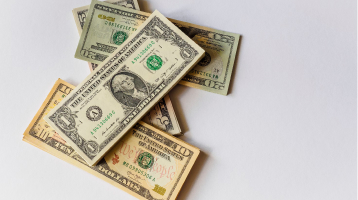How to Find Out If You Have Outstanding Payday Loans?

Worried about unnoticed payday loan obligations? Delve into our article to uncover strategies for determining if you have lingering payday loan balances. Take control of your financial well-being by understanding the steps to assess and tackle outstanding payday loans.
Table of Contents
- Why Is It Important to Check for Outstanding Payday Loans?
- How to Find Out If You Owe Payday Loans?
- How Long Does a Payday Loan Stay in the System?
- What Happens If You Don’t Make On-Time Payments for Payday Loan?
- Alternatives for Repaying Payday Loans
- Bottom Line
- FAQ
Did you know that 12 million American consumers apply for payday loans yearly, spending $9 billion on loan charges? Plus, an average payday loan borrower defaults on the payday loan debt within five months of the year. According to Pew Charitable Trusts, the average fee for an alternative loan, such as a payday loan, is $55 per two weeks.
This article will discuss how to find out if you have outstanding payday loans and face your financial reality head-on. Get ready to read some tips and tricks on checking and dealing with your debts properly.
Why Is It Important to Check for Outstanding Payday Loans?
When you’re going through your day being thankful for your financial health, you get hit with a surprise bill or debt collector knocking on your door. It is not a pleasant situation you want to be in. That’s where checking for outstanding payday loans and financial literacy become crucial.
Payday loans seem quick fixes, but they can become sneaky troublemakers if you’re not careful. First, you don’t want any nasty surprises when you least expect it. Such loans can pile up with high-interest rates quickly, primarily when you don’t repay them on time. You’re taking charge of your financial life by checking if you have any outstanding payday loans.
More than that, nobody wants to deal with credit issues. Outstanding payday loans can mess with your credit and make it harder to get a loan or even a credit card in the future. Checking for outstanding payday loans is like giving your financial life a second chance to improve it. It keeps you in control, prevents surprise meltdowns, and helps you avoid those credit score problems.
How to Find Out If You Owe Payday Loans?
Verifying your payday cash loan standing is brilliant, especially if you want to clean up your credit history. Even if it says that covering payday loans doesn’t improve your credit score, you can check your outstanding debt and wrap it in full. And this action is what payday lenders and credit bureaus want to see. But figuring out if you owe payday loans isn’t rocket science. Here’s the lowdown:
Check your email and phone: Search your email and text messages for communications from a payday loan company. They’re open about reminding you to pay up, so look for any loan-related messages. Go through bank statements: Review your bank statements for the past few months. Look for any withdrawals or payments that seem unfamiliar. Those could be your payday loan repayments. Contact the lenders and verify your payday loan debts through Veritec Database. Lenders use a non-traditional credit checking system to check if borrowers qualify for any loan product. Remember that only a legal payday lender can use this system. If you think you might owe payday loans, you can always cut to the chase and call the lenders directly. Ask them about outstanding debts and prepare to pay the debt if they confirm. Check your credit report: A credit check will reveal your financial situation. You’re entitled to a free report annually from each major credit bureau. Look at it and see if any debts are listed. Use CoreLogic Teletrack to check your credit standing. It allows borrowers to access the information kept in their database. If you suspect errors in your credit database, you can correct them immediately. Contact a credit counselor: If you’re struggling to figure things out, consider contacting a credit counselor. They can help you sift through your financial history and guide you in tackling any debts.
How Long Does a Payday Loan Stay in the System?
Payday loans can stick around for a while if you don’t repay them on time. If so, debt collectors are at your door. However, you must know that such loans don’t work as traditional loans. For about seven years, unpaid conventional loans (such as installment loans or credit card debts) appear on your credit report.
When you take out a payday loan, it’s a little financial record that gets filed away. Lenders usually report this matter to major credit bureaus, who keep track of it. If you’re planning to apply for a long or short-term loan in the future (be it a credit card, car loan, or mortgage), direct lenders or credit card companies might see that, and it could impact their decision.
But don’t worry about it too much. As time goes on, the impact of that payday loan on your credit score tends to decrease, especially if you’re staying on top of your other financial responsibilities. So, while it might feel like a cloud hanging over you, it’s not forever.
What Happens If You Don’t Make On-Time Payments for Payday Loan?
Things can get tricky if you don’t make on-time payments for your payday loan. Payday loans are those quick cash fixes with a catch – high-interest rates and short repayment periods.
First, you might be hit with late fees and extra interest charges quickly. And those rates can be seriously hefty, making your debt bigger. But wait, there’s more! Your credit score could take a hit, too. That’s a financial report card, and if you start flunking by missing payments, it will be harder to get loans or credit.
If you keep dodging those payments, the payday lender might send the debt to collections. They might call, send letters, or even knock on your door. And the worst-case scenario? If things go way south and you keep avoiding the lender, they might take you to court. So, try your best to make those payments on time, or you could be in a financial tumble.

Alternatives for Repaying Payday Loans
So, you’ve caught up in the payday loan cycle and are looking for a way out? No worries, 15M Finance has got your back! Let’s discuss some alternatives to help you break free from those expensive payday loans.
Negotiate an Extended Payment Plan
Many payday loan lenders might be willing to work with you if you need help paying back the loan. You could ask them about setting up an extended payment plan, allowing you to repay the loan in smaller, more manageable installments.
Get Personal Installment Loans
You can get these loans from credit unions, banks, or online lenders. Such personal loans usually have more extended repayment periods and lower interest rates than payday loans. So, you can pay them back in smaller chunks over time.
Borrow from Friends or Family
Ask them for a temporary loan if you have a good relationship with your family or friends. Just make sure to outline clear repayment terms so everything stays chill.
Try Credit Counseling
Reach out to a credit counseling agency. They can help you create a budget, manage your debts, and even negotiate with your payday lender to devise a repayment plan that works for you.
Tap into Savings
If you have an emergency savings fund, now might be the time to use it. It’s better to dip into that fund than to let the payday loan interest spiral out of control.
Rely on Local Community Resources
Some local community organizations or churches offer financial assistance programs. It might be worth checking if they can provide some help.
Credit Union Payday Alternative Loans (PALs)
Some credit unions offer short-term loans with lower interest rates than traditional payday loans. They often come with more flexible repayment terms.
Bottom Line
So, here is a guide to figuring out if those pesky payday loans still hang over your head. Remember, it’s all about staying on top of your financial game and taking charge of your money matters. Dig into the credit records, call the payday lenders, and don’t let the outstanding loans play hide-and-seek with your peace of mind.
Whether it’s a sigh of relief or a bit of budgeting to tackle, knowing where you stand is your ticket to financial freedom. So go on, be the boss of your finances, and let those outstanding payday loans realize it’s time to step out of the shadows for good.
FAQ
How do I check my payday loan balance?
To check your payday loan balance, just contact the payday loan provider. You can call their customer service or log in to your online account if you have one. They’ll give you the scoop on how much you owe.
Are unpaid payday loans forgiven?
No, unpaid payday loans usually aren’t forgiven. They can lead to serious debt troubles for your bank account. Better to cover them as soon as possible.
How do I find out what outstanding loans I have?
Just gather your financial documents, like bank statements and emails from payday lenders to find out what loans you have. You can also check your loan report for a comprehensive list of your loans.
